1. Cashews
A good source of magnesium, cashews play a vital role in maintaining healthy nerve function, regulating blood pressure, and supporting blood sugar control.
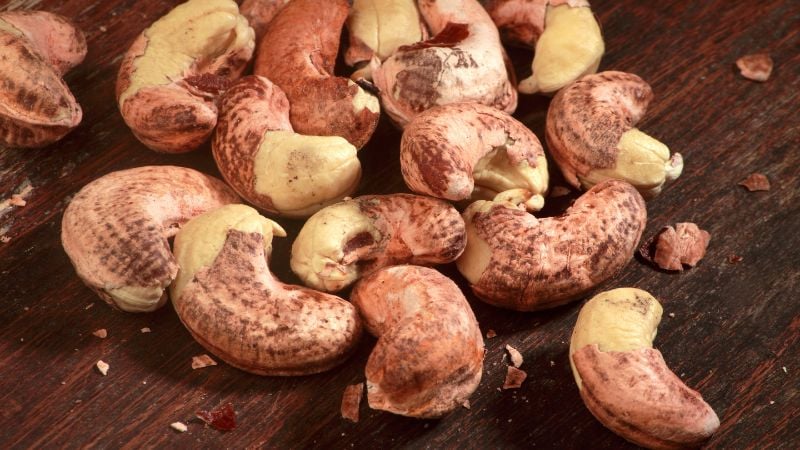
Cashews improve sleep quality, maintain a steady heart rhythm, and boost immunity.
Magnesium, abundant in cashews, helps relax muscles, improve sleep quality, and maintain a steady heart rhythm.
Additionally, cashews are a good source of monounsaturated fats, vitamin E, and minerals like copper and iron, which contribute to heart health and a stronger immune system.
The rich, buttery flavor of cashews makes them a delicious snack and a versatile ingredient in various dishes.
2. Pistachios
Packing 6g of protein per 30g serving, pistachios are a high-quality plant-based protein source that aids in muscle building and recovery. They’re also rich in vitamin B, boosting energy levels and enhancing mood.
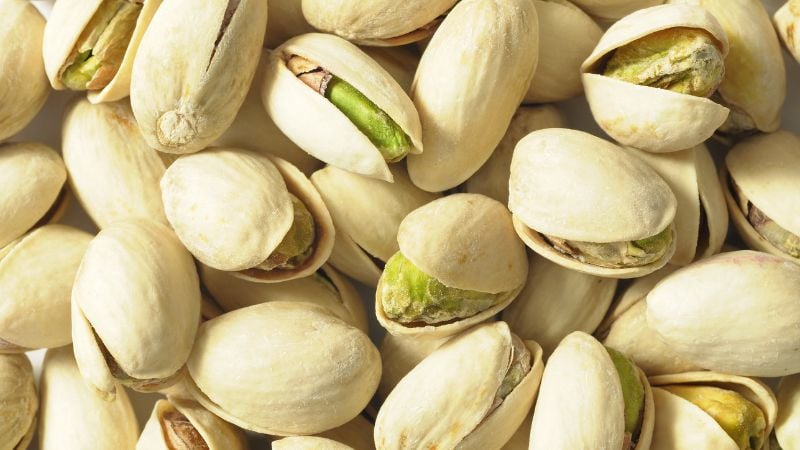
Pistachios are rich in vitamin B for enhanced energy and improved mood.
Interestingly, the distinctive green color of pistachios comes from lutein and zeaxanthin, two plant compounds that protect eye health and enhance brain function.
Lutein and zeaxanthin, along with other antioxidants in pistachios, shield the body from free radical damage and reduce inflammation, a contributor to many chronic diseases.
Pistachios are also a good source of dietary fiber, improving digestion and increasing satiety. With approximately 50 nuts in a 30g serving, you can enjoy pistachios as a nutritious and satisfying snack.
3. Walnuts
Instead of reaching for typical snacks, try walnuts for a tasty, nutritious, and convenient option.
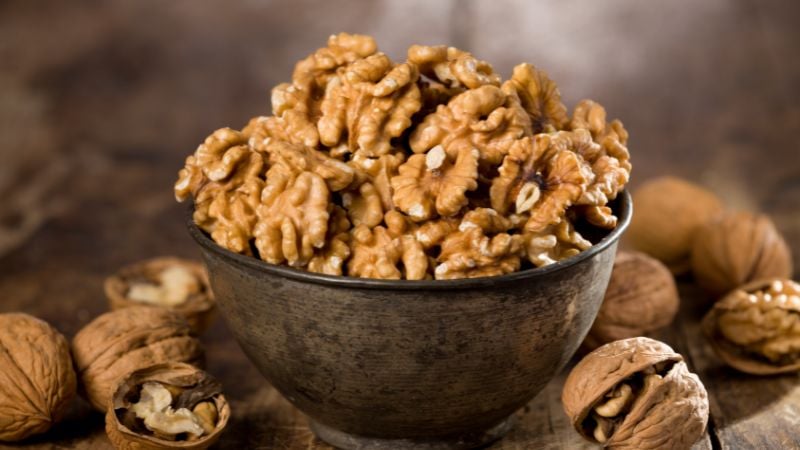
Walnuts boost gut microbiota, improve digestion, and strengthen the immune system.
Just a small handful of walnuts (about 30g) provides a good amount of protein, fiber, and healthy fats, keeping you satiated and energized.
The monounsaturated fats in walnuts help lower bad cholesterol while increasing good cholesterol, promoting heart health and reducing the risk of cardiovascular disease.
Additionally, walnuts are rich in antioxidant polyphenols, which protect cells from damage, combat aging, and lower the risk of chronic illnesses.
Furthermore, the prebiotics in walnuts feed beneficial gut microbiota, improving digestion and boosting immunity.
4. Almonds
Almonds are an excellent plant-based source of protein. They’re also packed with fiber, magnesium, and vitamin E—essential nutrients for the body.
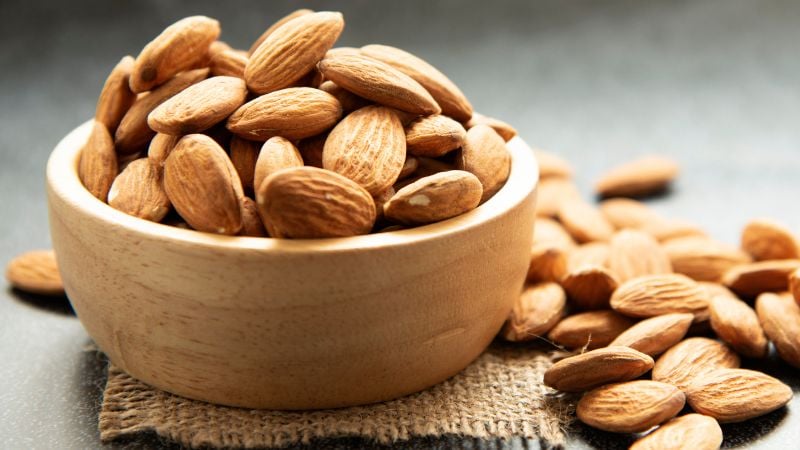
Almonds lower bad cholesterol, protect heart health, and stabilize blood sugar levels.
The fiber in almonds increases satiety, improves digestion, and reduces the risk of diabetes. Magnesium relaxes muscles, regulates blood pressure, and supports nerve function.
Vitamin E, a powerful antioxidant, safeguards cells from damage and slows down aging. The monounsaturated and polyunsaturated fats in almonds lower bad cholesterol, protect heart health, and help manage blood sugar levels.
The perfect blend of these nutrients makes almonds an ideal snack for people of all ages.
5. Macadamia Nuts
With a low glycemic index (GI) of 10, macadamia nuts are unlikely to cause a spike in blood sugar levels after consumption.
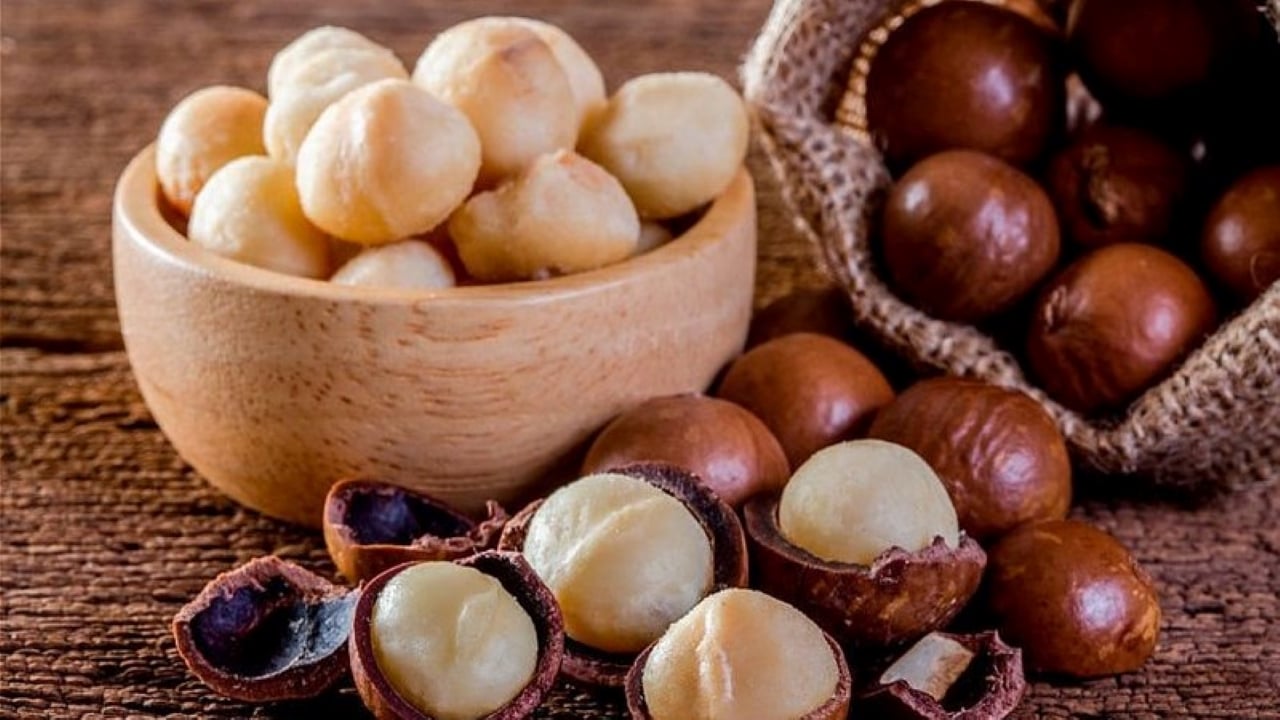
Macadamia nuts are a healthy and delicious choice for people with diabetes.
Moreover, macadamia nuts are relatively high in vitamin B1, with 100g providing approximately 1195mg, meeting nearly 100% of the daily vitamin B1 requirement for adults.
Research has shown that vitamin B1 helps prevent cardiovascular complications in people with diabetes by reducing triglyceride and LDL (“bad”) cholesterol levels in the blood.
Including macadamia nuts in the diet of diabetics is a wise choice, as it helps mitigate the risk of cardiovascular complications.
The Ultimate Guide: How to Tell the Difference Between Pistachios and Chestnuts
Hazelnuts, also known as filberts or cobnuts, are a familiar ingredient in many baked goods and milk-based beverages. Often mistaken for chestnuts due to their similar appearance, hazelnuts have a distinct flavor and texture that sets them apart. Stay tuned as we explore the unique characteristics of hazelnuts and learn how to differentiate them from other nuts.


































